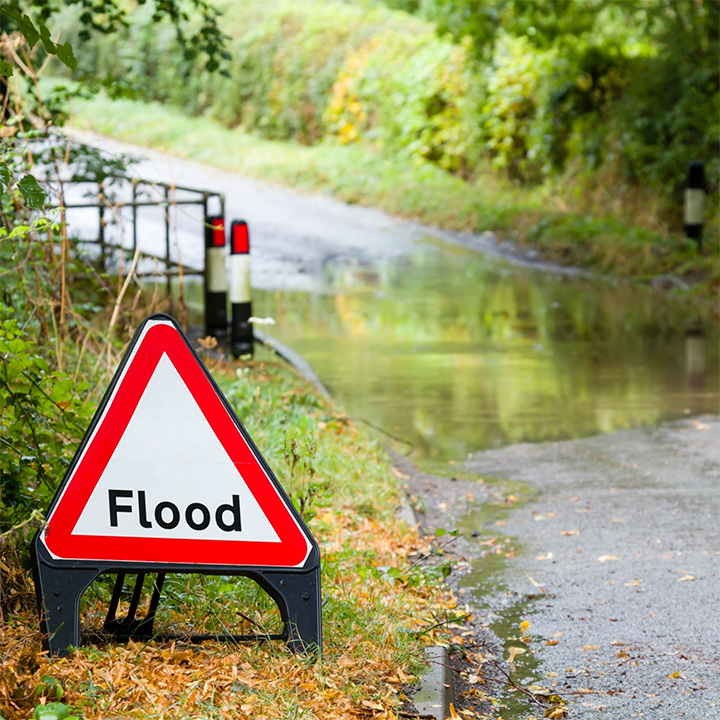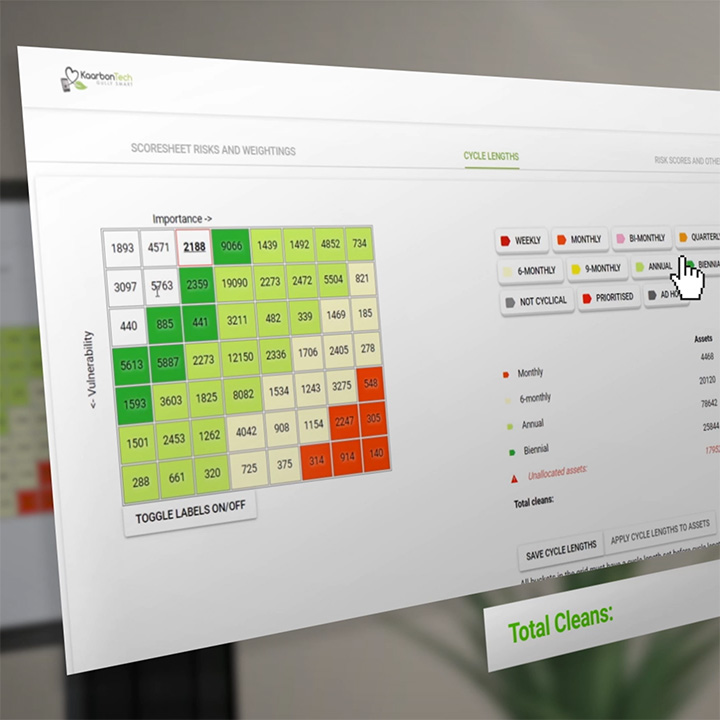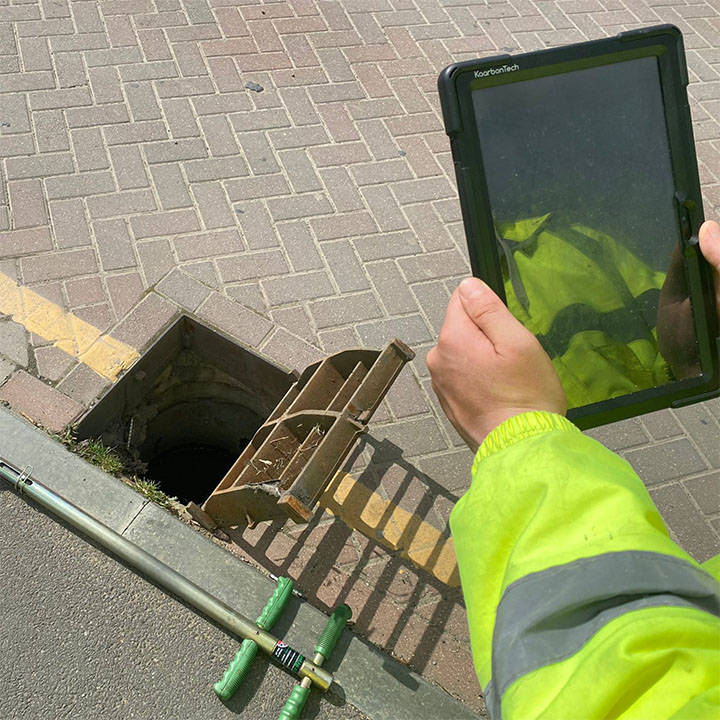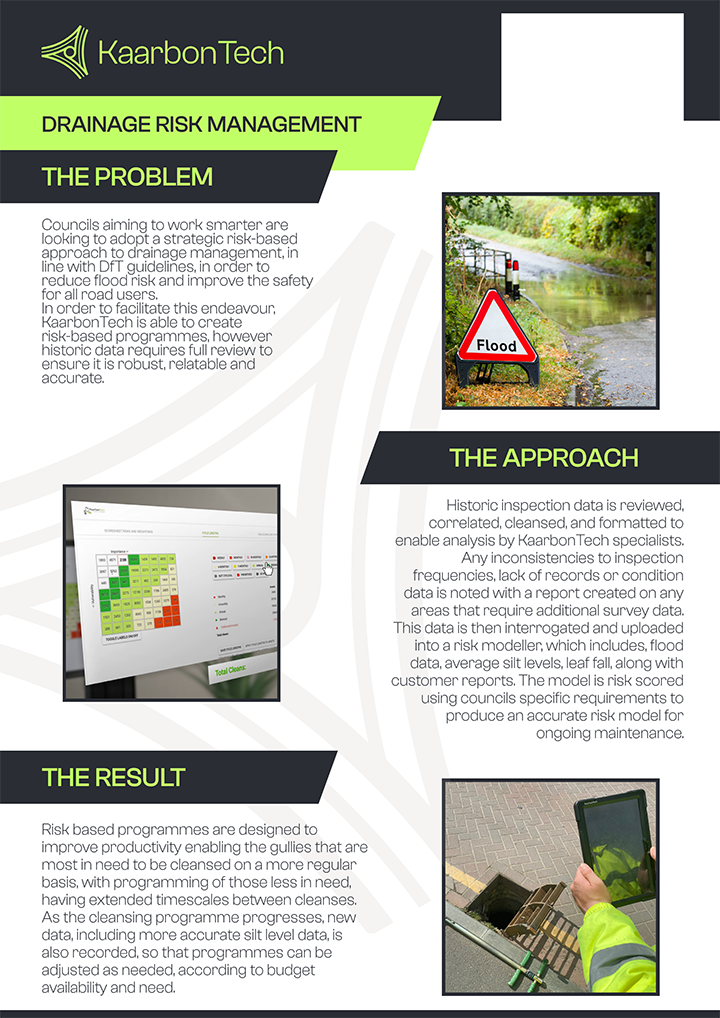Councils rarely have confidence in their historic data on which to set meaningful risk-based programmes.
Councils aiming to work smarter are looking to adopt a strategic risk-based approach to drainage management, in line with DfT guidelines, in order to reduce flood risk and improve the safety of all road users.
In order to facilitate this endeavour, KaarbonTech is able to create risk-based programmes, however, historic data requires full review to ensure it is robust, relatable and accurate.

Data is scrutinised, cleansed, updated and existing programmes are analysed, to risk score the routes.
Historic inspection data is reviewed, correlated, cleansed, and formatted to enable analysis by KaarbonTech specialists. Any inconsistencies in inspection frequencies, lack of records or condition data is noted with a report created on any areas that require additional survey data. This data is then interrogated and uploaded into a risk modeller, which includes, flood data, average silt levels, and leaf fall, along with customer reports. The model is risk-scored using the council's specific requirements to produce an accurate risk model for ongoing maintenance.

New improved programmes are proposed, based on individual councils’ risk profiling.
Risk-based programmes are designed to improve productivity enabling the gullies that are most in need to be cleaned on a more regular basis, with the programming of those less in need, having extended timescales between cleanses.
As the cleansing programme progresses, new data, including more accurate silt level data, is also recorded, so that programmes can be adjusted as needed, according to budget availability and need.

"Risk-based scheduling enables councils to move away from traditional cyclical gully programmes.
"
